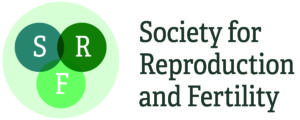


The SRF, ARCS and the BFS are working together to seek a Royal Charter. In this document we will explain what this means. In due course we will be providing an opportunity for you to ask questions directly, but if you have any queries in the meantime, please feel free to contact us via our secretariats.
What is a Royal Charter?
A Royal Charter is a rarely awarded recognition that signifies an organisation is approved of by the government for contributing to the public interest.
Why is it beneficial?
Organisations that possess Royal Charters are accorded more influence with government as it is seen as a sign of acknowledgment of their expertise over time. Examples of such organisations include certain universities, professional bodies and national institutions.
Why should the BFS, ARCS and the SRF get one?
It has been over four decades since the birth of Louise Brown by IVF and, worldwide, there are now millions of people conceived through assisted reproduction. Over this same time period, there is increasing evidence that population demographics, climate change, pollution and disease adversely influence fertility and reproductive health. These observations, coupled with advances in reproductive technologies, have stimulated clinical, scientific and research developments across the UK and beyond. Importantly, these crucial areas of expertise are brought together across the three Societies with the ultimate aim to positively impact on society at a national and international level. The discipline of fertility and reproductive health is relevant to many medical, social, political and scientific discussions and debates across society. We feel it is important for reproductive specialists and fertility professionals to have an organised and coherent way of contributing to these debates, and obtaining a Royal Charter would greatly support this.
How will it help the societies?
We believe that it will increase our influence with government in matters related to fertility practice and reproductive health. It will make us more effective in campaigning on issues that are important to us, like fair access to fertility treatment and on the funding of research topics. We believe also that it will make us more effective when a discipline-wide response is needed.
Why are the 3 societies doing this together?
The award of a Royal Charter would mean that we are recognised as the national experts on matters of fertility and reproduction and to do so, we would need to include representation of the professional groups involved in the discipline: clinical, scientific and academic.
Why is it happening now?
In recent years we have had closer cooperation between the three societies and a great example of this is the annual Fertility conference, which has been an outstanding success. We have also worked together on policy statements and guidelines, as well as recently leading a coordinated response to the Covid 19 pandemic. This partnership we believe has been of benefit to the memberships and strengthening the relationship through a Royal Charter will make us more effective.
Is this a merger between the societies?
No, the three societies will remain as they are. A new umbrella structure to be called The Chartered Institute of Reproductive Science and Medicine, (CIRSM) will be created to deal with matters of joint interest, subject to the permission of the Executive Committees. The Institute will be governed by the Executive Officers of ARCS, the BFS and the SRF and so will in effect be controlled by the Executive Committees on behalf of the memberships. The ‘Chair’ of the Institute will rotate on an annual basis to the sitting Chair of the relevant society to ensure ongoing equality for all three.
Will it be called a Royal Society?
No, that follows a different application process and is not being pursued by us at the moment. When the Charter is granted we will be able to use the term ‘Chartered’.
How will this affect me?
Royal Chartership will increase the influence of the societies and through that, the influence of the memberships in areas that are important to their professional lives. We are also seeking the power to charter individuals that demonstrate a certain level of professional expertise as a sign that we recognise their contribution to the discipline of fertility and reproductive health.
How will individual Chartership work?
While the precise details are being formulated, in essence it would be through an application process, where your existing qualifications, role, experience and scientific contributions will be assessed. If CIRSM believes that you have met the necessary standard that will be determined by the 3 participating societies it will award individual Chartership and with it, the right to use post-nominals. To remain Chartered you would need to submit evidence of relevant ongoing professional development
Will this mean more paperwork?
A little, but we are planning to keep it light touch by allowing you to submit a copy of what you already need to submit for your appraisal or revalidation, so you shouldn’t need to do anything extra beyond what you are already doing.
Will all members be able to apply for Chartership?
There will be a route to Individual Chartership for all members with recognised professional qualifications that are working as health professionals in fertility clinics and are participating in a CPD programme. Individual Chartership will similarly be awarded to members in recognition of their speciality contributions to reproductive health and well-being. For example, by considering evidence of their on-going academic activities, such as publications, contributions to expert scientific review panels, presentations on novel and original research findings and public engagement.
Will this cost me anything?
There will be a small cost to the societies, largely related to receiving the Charter itself (approx.
£2000 for each society as a one-off cost). Those members who wish to become Chartered will need to pay a small annual fee to cover the administrative costs. The exact amount has not yet been determined but will be set to make the scheme break even only and not to generate a profit, so we will keep the fee as low as possible without incurring a loss for the societies (which we wouldn’t be allowed to do).
Do I have to seek Chartered Member Status?
No and if you don’t, you will retain the same rights and privileges as being a member of the SRF, ARCS or the BFS currently grants.
When will this happen?
The process is lengthy, and it is possible that the Privy Council will reject the application. If it is granted, the changes needed in our organisations would then need approval from our memberships, before we could proceed.

